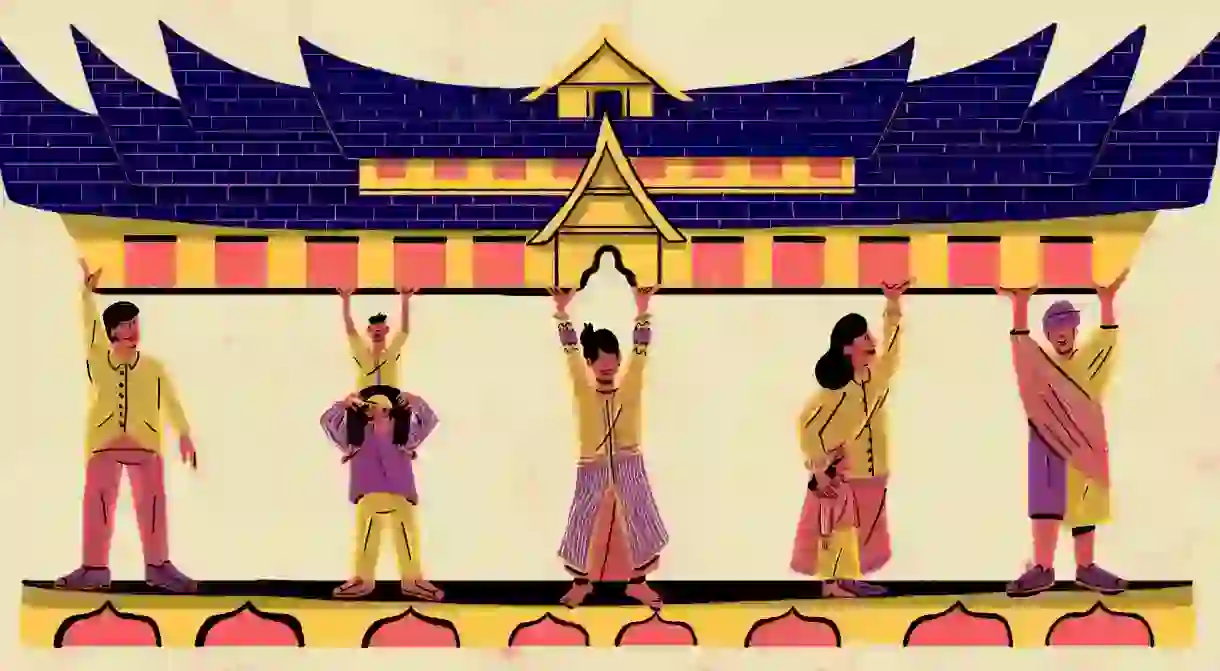Guyub: Indonesia's Secret to Happier, Healthier Communities

Imagine living in a community where joy is shared and pain is consoled. For centuries, the Javanese communities in Indonesia have lived by the principles of guyub, an ancient concept that brought individuals together in happier, healthier communities.
Defining Guyub
It’s hard to define guyub with a single equivalent word, but it can be understood as a collective volition to join one another “in togetherness.” The concept drives families to come together in harmony and teaches individuals to put the self in an existential context. It transcends an understanding about who you are internally, as well as where you are in connection with the people around you.
The Importance of Guyub
Various studies affirm one another in concluding that social connection is vital to individuals’ overall health and well-being. Over time, study after study has claimed that social connection strengthens our immune system, promotes higher self-esteem, and may even lengthen our life. So, while guyub advocates the prominence of the social over the self, it actually has profound benefits for individuals as well.
The principles of guyub remind us that humans are social beings, despite the alarming decrease in human interaction during this modern, digital era. Instead of focusing on an endless pursuit of personal gains, people who live in a guyub community take joy in helping others and contributing to the community.

How Guyub Manifests itself in Communities
The simplest form of guyub involves coming together to help a community member carry his or her burden, be it emotionally or even financially. People who lost their jobs will never starve, as neighbors make it their business to care for them—it pains the whole community to see others suffering.
On the other hand, happiness and good fortune are also shared in a guyub community. When a community member celebrates something, be it a good harvest or a relative’s wedding, everyone in the community takes part in the happiness, not only emotionally, but also in tangible ways. Free food is distributed or festive receptions are held by community members. This manifestation of guyub also explains the culture’s many ceremonies and festivals —all milestones and victories of life are celebrated together in a community.
Some scholars argue that the principles and habits of shared fortune were first formed when traditional communities managed their natural resources. As agrarian people, they understand that the key to their well-being is sustainability in using resources like land and water; they’ve devised ways to organize how sources like water springs are shared among members of the same area.

From there, the principles of guyub or other similar concepts extend to basically everything else. Neighbors come together to arrange weddings, funerals, and other ceremonies. Instead of hiring and paying for services, members of a community get all the help they need from their neighbors, and they are happy to return the favor. Men take turns staying up to keep an eye on the neighborhood’s security and do civil patrol, leading to more intimate and mutually beneficial relationships among families.
Guyub principles also have a place in architecture. Many Javanese have large living rooms or gazebos that also serve as spaces to host guests or community events. And while you may not be inclined to incorporate the same architectural principles, may you be reminded to always find the time and space to connect with those around you.













